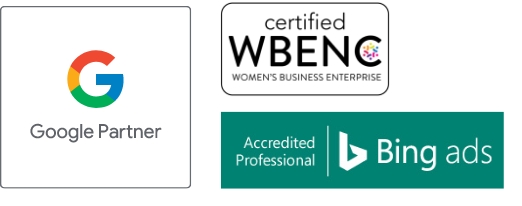
Let Your Students Tell the Story
Your marketing department may produce the most beautiful brochures, intuitive, informative websites, and eye-catching billboards but still not be attracting as many new students as you’d like. This may come down to one very important missing piece. When prospective students look at your college or university, they are trying to imagine themselves there. Using descriptions of what life and learning are like on your campus from students who are actually there – or were very recently – is an especially powerful marketing strategy. Gathering and marketing positive, genuine student testimonials may take skill and patience – but it’s a valuable resource to add to your marketing and recruitment toolkit.
TESTIMONIALS BUILD TRUST AND CREDIBILITY
Think of your college or university as a business and student testimonials as customer reviews. Today’s prospective college students and their families do the majority of their shopping online and regularly read reviews for products, restaurants, entertainment destinations, and more. Positive reviews influence their decisions, so you need to make sure your school has plenty to pull them in your direction. Gathering testimonials from your most enthusiastic and inspiring students and recent alumni can do a lot to build your brand and reputation.
Prospective students are also more likely to trust and be persuaded by people who they can relate to – those who look like them, are of a similar age, or share similar interests or goals.
5 TIPS FOR COLLECTING, MANAGING, AND SHARING STUDENT TESTIMONIALS
When you’re ready to get started with testimonial-based marketing, consider these tips for tracking down and engaging your student ambassadors and finding the most effective ways to format and feature their testimonials.
- Start With a Survey: Consider emailing current students and recent alumni some short survey questions and requesting them to share details about their experience with your school. Keeping this survey short means you’re more likely to get their participation. These surveys can help you gather important data on what matters to your students – and potential students – and begin building a collection of testimonials you can draw from and expand upon over time. Remember to ask for permission to use anything you intend to publish!
- Meet Potential Student Ambassadors Where They Are: Engage with students and recent alumni in person or virtually at orientation, graduation, homecoming, and sporting or social events. Or put a prompt on your social media asking student or alumni followers to either comment or direct-message your school to share their experience and contact information for a possible follow-up interview.
- Create a Library of Both Written and Video Messages: Videos can be a very effective form of communication with your intended audiences. Whether you feature them on your social media pages, webpages, or blog, they can be viewed on demand and allow viewers to “get to know” the speaker by seeing what they look like and hearing the excitement and emotion in their stories. Make sure videos are fairly short to keep viewers’ attention, high-quality, and not too obviously scripted to maintain your audience’s trust. Written testimonials are also important because you can use them in snippets and full-form across varying marketing media – from college or university emails to brochures and magazines, to social media. Let your student ambassadors write their own stories but then make sure you edit so they look professional and polished. These testimonials can be short and sweet or longer if they’re especially captivating or impactful – it’s a good strategy to have a variety of each. Featuring photos with written testimonials also makes them more relatable.
- Aim for Variety: Your prospective students aren’t all the same, so your testimonials shouldn’t be either. Gather testimonials from undergraduate and graduate students and alumni, from students in various programs, from academics and athletes, and from students with unique backgrounds or who have had extraordinary experiences during their days on your campus. As you’re likely targeting a socially conscious set of prospective students, consider highlighting students or alumni involved in community service and purpose-driven initiatives on campus and beyond.
- Make Testimonials Part of Your Continuing Marketing Strategy: If you want your testimonials to be impactful, you have to keep the content fresh. Send surveys and social media prompts out fairly often, and engage with students at in-person and virtual events each semester. This will ensure that you’re getting stories from students actively attending your school or those who’ve just graduated. Your prospective student audience will relate best to people they can see themselves sharing a campus or classroom with. Also, it’s important to stay with the times when it comes to sharing these testimonials on social media. Beyond Facebook, Twitter, and Instagram, many colleges and universities are now building a social media presence on TikTok and Snapchat, platforms frequently used by many of the students they are aiming to attract.
See the power of storytelling in your marketing strategy. LIGHTSTREAM can help you more effectively gather and share student testimonials for maximum impact with prospects. Contact us today.
